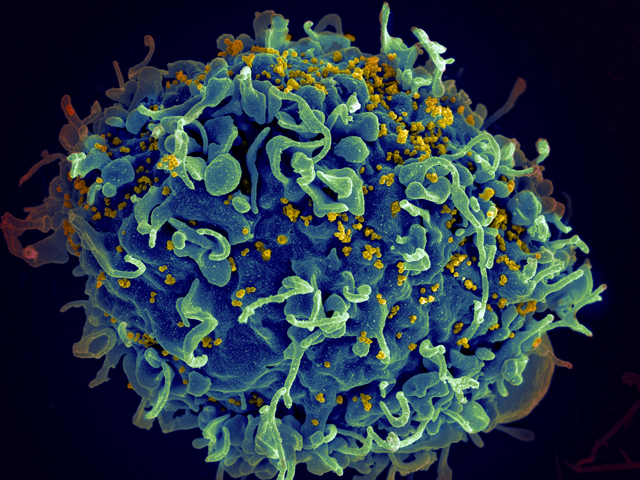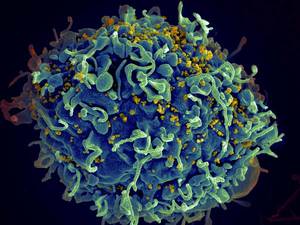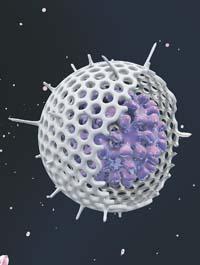A toxin kills cells infected by the AIDS virus
2014/02/03 Galarraga Aiestaran, Ana - Elhuyar Zientzia Iturria: Elhuyar aldizkaria

In a study with mice, researchers at the University of North Carolina have shown that an anti-cellular toxin contaminated by the AIDS virus, HIV, is effective and can be a perfect complement to conventional therapy.
Toxin was created in 1998 in the laboratories of the United States Health Institute (NIH). It is called 3B3-PE38 and acts specifically against hiv-infected cells: it enters the inside of infected cells and prevents protein synthesis. This causes the cell to die.
The researchers thought this toxin could be useful to complement conventional antiretrobile-based therapy. Despite the fact that antiretroviral drugs are effective, they are not enough to cure AIDS completely, among other things because there are always viruses that remain in cells. Therefore, it would be a great advance to be able to remove those hidden viruses.
With this hope they have carried out an experiment with 40 transgenic mice with human immune system. First the mice were infected and, a few months later, they underwent treatment: in half they were given antiretroviral drugs and in the other half, antiretroviral drugs and toxin. According to the researchers, the second group had many fewer viruses after treatment, both in blood and in organs.
The research was carried out in the specialized journal PLOS Pathogens. However, researchers have warned of the need to take many steps for their personal use.

Gai honi buruzko eduki gehiago
Elhuyarrek garatutako teknologia





